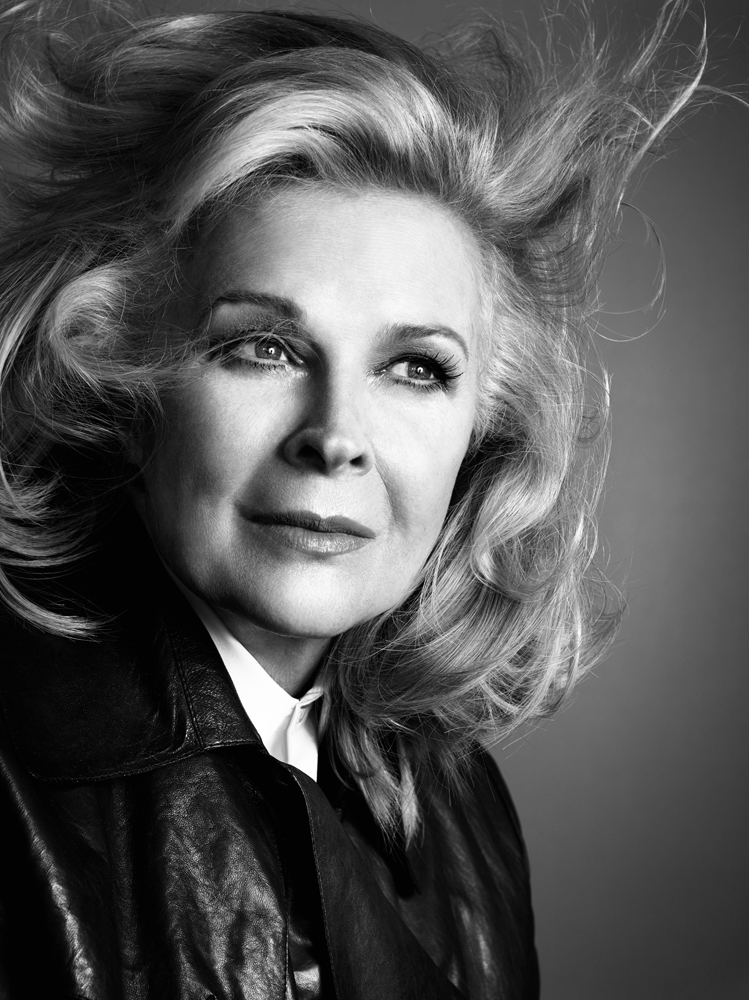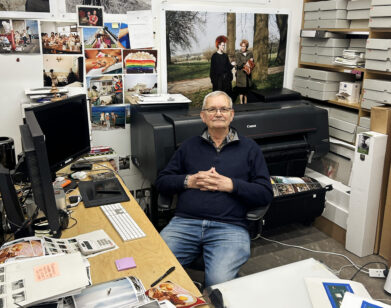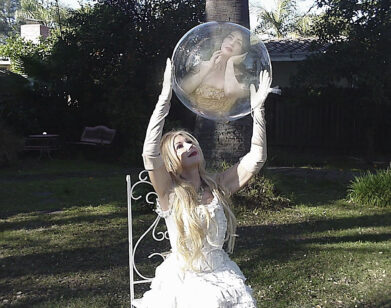Candice Bergen
Candice Bergen has lived multiple Hollywood lives. As the daughter of Golden Era entertainers Edgar and Frances Bergen—a comedian, ventriloquist, and radio personality, and an actress and model, respectively—Candice spent her childhood in sunny, starry Los Angeles before moving east for college and later making it as a Ford model, gracing the cover of Vogue, and sitting for the likes of David Bailey and Bert Stern. Her on-camera life, which began with a role as a Vassar grad in Sidney Lumet’s The Group (1966), has included turns in Mike Nichols’s Carnal Knowledge (1971), with Jack Nicholson and Art Garfunkel, The Sand Pebbles (1966), alongside Steve McQueen, and an Oscar nom for the comedy Starting Over (1979). In 1975, Bergen was the first female host of Saturday Night Live, and she has continually pushed the breadth and depth of her body of work, jumping between comedy and drama with her trademark elegance and tenacity, acting in multiple runs on Broadway and dominating TV (as well as some major political conversations) in the late ’80s and ’90s, while racking up five Emmys as the titular, tough-talking power journalist on Murphy Brown.
Life for Bergen off set, too, has always been in widescreen: she attended Truman Capote’s legendary Black and White Ball in 1966, occupied the Beverly Hills house that would later become infamously known as “the Sharon Tate house,” and, as an activist, palled around with Huey Newton and Abbie Hoffman, and accepted a date with Henry Kissinger. This month Bergen, now 68, will release her memoir, A Fine Romance (Simon & Schuster), a chronicle of her marriage to the late French director Louis Malle, the birth of her daughter, Chloe, her journey into widowhood after Louis’s death, and her experience learning to love again.
Bergen’s old friend and Miss Congeniality (2000) co-star Sandra Bullock recently caught up with her by phone to discuss failing in college, raising children, and the joys of carbohydrates.
CANDICE BERGEN: It’s very cold here. We’re just sitting by the fire in our country house in France planning a wedding.
SANDRA BULLOCK: I’d rather be in Paris with a nice bottle of wine than in a little farmhouse, to be honest.
BERGEN: We’re drinking! [both laugh]
BULLOCK: Oh, good! I’d like you to continue drinking because as we get in-depth, there’s going to be some hard-hitting, probing questions. I want some honest answers coming from you, okay? [laughs]
BERGEN: I was counting on nothing less from you.
BULLOCK: I’m going to go all the way back. So few people are actually California natives, I’m finding. You were born and raised in Beverly Hills. You were born into an industry family that was a huge part of Hollywood. Was it normal for you, or did you know that you were born into this unique family situation?
BERGEN: It was completely normal. Walt Disney was a friend of the family, and he had, I remember, a miniature train set built in his garden. It was about waist-high, so you would sit on the train, put on an engineer’s cap, and then you’d shovel coal into the engine. That was just an afternoon at the Disney’s. My parents would have a party … I remember Rex Harrison singing at the piano, Fred Astaire dancing with all the ladies. The Reagans were very old and close friends. It was a great community then because it was very relaxed, and people really had fun. Nobody took it seriously the way they take it now.
BULLOCK: That’s what I always imagine it being like. I know exactly the train you’re talking about. Friends of mine actually bought the Disney house, and they kept the tunnel and the tracks. I wish I could transport myself back to that time and be around artists like that. Did you know at the time that you would be an actor or performer? Did you have thoughts of doing something else?
BERGEN: I made feeble attempts to be a journalist and a photographer, but when you grow up there and your parents are in the business … Of course, it’s not like Detroit, but it’s a company town.
BULLOCK: You did your first film, Sidney Lumet’s The Group, when you were attending college, right? Did you finish college, or did you say, “This is what I want to do”?
BERGEN: In fact, I was kicked out just before I started The Group.
BULLOCK: What did you do?
BERGEN: College was in Philadelphia. I was in New York a lot. I managed to fail opera, and they said it couldn’t be done.
BULLOCK: You were a pioneer back then!
BERGEN: Exactly! [laughs] Breaking boundaries right and left.
BULLOCK: God, I love you. I’m a terrible opera singer, so that makes me really happy. If I were going to school with you, I would have failed opera as well. I feel even a greater kinship with you right now. In your memoir, A Fine Romance, you start with the courtship of your first husband, Louis Malle. You allude to the fact that it wasn’t the most auspicious beginning.
BERGEN: We had met a couple of times at gatherings; we had common friends. We met at a dinner party and I was wearing a designer caftan, and it kept sort of sliding around, and I was always adjusting it. He was ill at ease, and I was ill at ease. It did not catch fire, but I have a very close friend from college, a great photographer named Mary Ellen Mark, and she said, “You’re going to marry Louis Malle. I know it. There’s just no question.”
BULLOCK: What did she see that you didn’t at first?
BERGEN: She’s a little bit of a witch, so I think she just knew that it was going to happen. She’d known him and saw both of us together. In fact, the book starts with the birth of my daughter, who’s getting married in July, which is why we’re here at the house in France, and then it goes to Louis and me meeting. A Fine Romance refers primarily to the love of your life, which is your child, and the overwhelming depth of feeling that that taps into. And it refers to her father, who was a great love, and then the luck of meeting my husband, three years after Louis died. But it’s really a love letter to my daughter.
BULLOCK: Let’s talk about Chloe. I remember meeting her again a couple years ago when we were sitting at one of those functions at a round table with lots of bread. I think you and I were the only people eating the bread. [laughs]
BERGEN: You were doing your Gravity [2013] publicity. My daughter is an editor at Vogue, and she has been living with a fantastic guy for the last few years. They’re getting married at our house in the country, which is where Louis and I were married. He makes her very happy, so she’s a very lucky girl.
BULLOCK: Isn’t that wonderful. Let me just say how elegant and how poised and grounded and smart and beautiful she is. That’s an extraordinary testament to you and what you did as a mom and a single parent. She just flowered. You allowed her to become who she was supposed to be.
BERGEN: The truth is I just got incredibly lucky. She’s so happy with her fiancé that I can just sit back and relax. I don’t really worry about her anymore.
BULLOCK: Well, you’re still going to worry. [both laugh] It’s not going to stop. Don’t lie! Don’t lie to me in this interview!
BERGEN: Is [Bullock’s son] Louis in kindergarten yet?
BULLOCK: No, he’s in preschool. We’re finishing up preschool, and it’s a daunting task of finding the right school that will allow him to be himself and not take away this beautiful spirit he has.
BERGEN: It only starts being daunting now—you wait.
BULLOCK: You’re right; it’s the love of your life. Nothing else matters, absolutely nothing. It’s so much joy and love in another human being. You have no idea that your body can contain that much happiness. I’m crying all the time, and he rolls his eyes, and I’m like, “They are happy tears, and they are tears of love!” [Bergen laughs] It’s just embarrassing.
BERGEN: We were just at the dinner table, and they were talking about the marriage ceremony, and my daughter said, “Are you crying?” And I said, “Oh, shut up! Shut up!” [laughs]
BULLOCK: You decided to have a child at 39, and you were somewhat ambivalent about it. Am I correct in that?
BERGEN: Yes, you are.
BULLOCK: What made you decide?
BERGEN: Well, the ’70s had just ended. There were swirling currents of thought in the women’s movement and a lot of women got caught up in that. A lot of women missed the boat to have a child. Suddenly I just did not want to miss it. I got pregnant, oddly quickly, and it was just such a gift.
BULLOCK: You took time off from work for about three years before you auditioned for Murphy Brown?
BERGEN: Yes, I did.
BULLOCK: You were the first female host of Saturday Night Live, which is amazing, but you didn’t really have a huge résumé of comedy. Here you dominated television as a brilliant comedian, and you had a young child. Were you torn at all? Did you feel the pull?
BERGEN: Well, one night, when Chloe was 6 months old, and it was my 40th birthday, my husband said, “I’m taking you away.” But I was so traumatized that I was sobbing all the way to Washington, D.C., on the train. You can imagine, it was like, “Well, this is going to be a really hot date.” [Bullock laughs] By the time Murphy came along, I was going a little crazy not working. You know what it is. You develop these muscles, and then you get sort of twitchy when you don’t use them. Murphy meant that I could stay fixed in one place, which, as you know, with a child, is important, especially when they’re school age. My husband wanted us to move to Paris, and then Murphy Brown came up, and my mom and my brother lived in L.A., and it was a wonderful solution. But it was very complicated for Louis and for me because of the distance.
BULLOCK: One thing that I love, and I’m sure you didn’t love it when it happened, was when the spotlight was drawn onto you when Dan Quayle said that your character, Murphy, who had a baby out of wedlock, was setting a bad example. I was like, “Wait a minute—are you saying single mothers who are working and taking care of children are a bad example?” That’s, like, half the female population! How did that feel to be in the eye of the storm?
BERGEN: I just wanted to be a gopher and go underground. It lasted because it became a campaign issue. It coincided with the presidential race between Clinton and Bush, and it lasted for six months. It was in The New York Times, it was in political cartoons, op-ed pieces. It just didn’t go away. I was really overwhelmed, and I just stayed quiet and let other people handle it. It was just way too much.
BULLOCK: Well, I think you were screaming loudly by your example. It’s like, I have to look at myself and say, “Well, I guess I’m a bad example. Louis, guess what! Your mother’s a bad example because I’m working and I’m a single mother. I don’t know how to explain it, but Dan Quayle says it, so …” [both laugh] It’s just archaic. There are grounds that need to be broken and roads that need to be paved, and fortunately and unfortunately, you were the one to do it. And you did it with such elegance and grace and wit. I remember when we did our wonderful tour de force, Miss Congeniality, you met [Bergen’s current husband] Marshall.
BERGEN: We had just gotten married! We started shooting when our honeymoon was supposed to happen.
BULLOCK: We were on that location on the stage. He was there—I don’t know what we were doing—but I remember looking across, and you were giddy. It was the sweetest thing. He was so demonstrative with you. He was, like, touching your face, saying goodbye or something, [Bergen laughs] and the affection, the sweetness … We were all on the other side of the stage, a little bitter. We were all going, “Wow. We have nothing. We have absolutely nothing.”
BERGEN: Well, you produced a huge hit. How often does that happen?
BULLOCK: I think it was because everyone left us alone. It wasn’t really a film that they said, “Oh, this is going to be fantastic.” You know? They went, “Okay, it’s not a lot of money.” We all had such a kinship with each other. I think you and William Shatner need to do a whole other show, because the two of you were just … [laughs]
BERGEN: Oh god.
BULLOCK: That, I want to watch! By the way, I moved to this house and was unpacking, and I pulled out this gorgeous cashmere jacket you gave me. It’s pink and it has all these beautiful embroideries. This woman told me the other day, “You need to stop wearing black. You need to wear pink because pink is the color of love.” And I was undoing the boxes, out came the pink jacket, and I was like, “I shall start by wearing Candice’s jacket.” So you brought me into the pink. Thank you.
BERGEN: [laughs] I’m honored.
BULLOCK: Is there anything that you haven’t done yet creatively that you’re itching to do? Is there anything creative, other than the book, that you feel you want to tackle next?
BERGEN: You know, I’m not that ambitious. I’m always grateful when I get offered something that engages me, it’s for the right amount of time, and I don’t have to leave my husband for more than a week or two. That’s really all I ask. This last year, I’ve gotten to do a few really interesting things that intrigued me, and I worked hard. The work is really fun and rewarding when you put the time in.
SANDRA BULLOCK IS AN ACADEMY AWARD-WINNING ACTRESS WHO HAS STARRED IN FILMS THE BLIND SIDE, GRAVITY, AND MISS CONGENIALITY.







